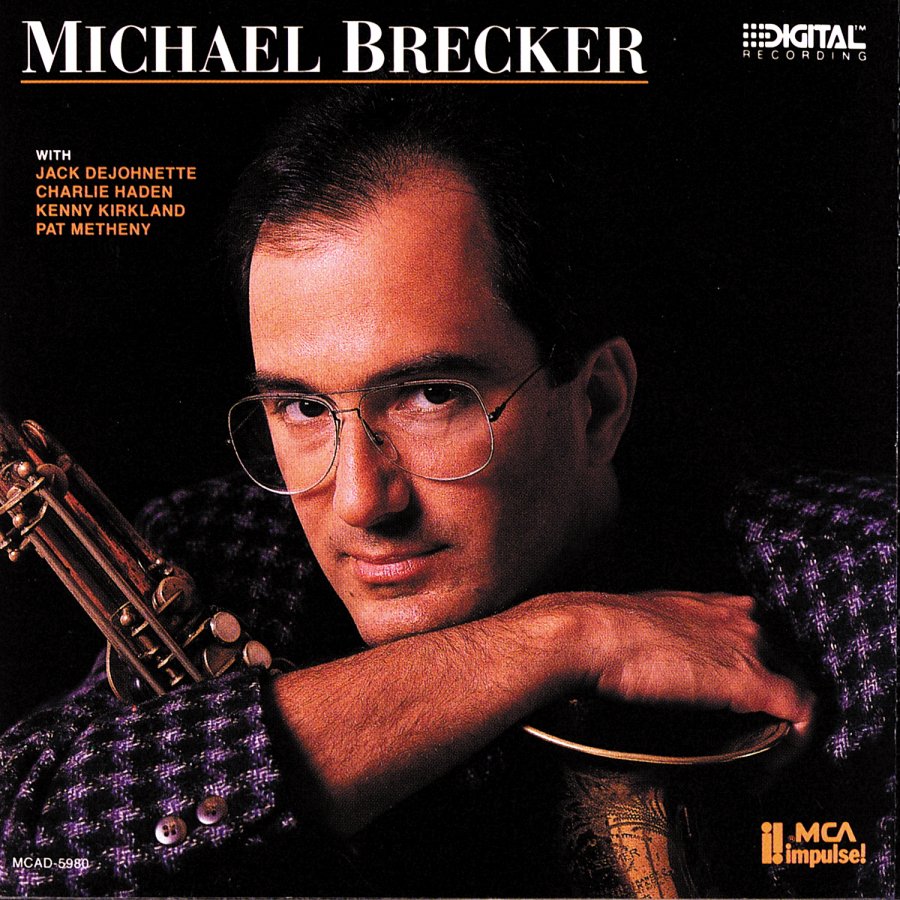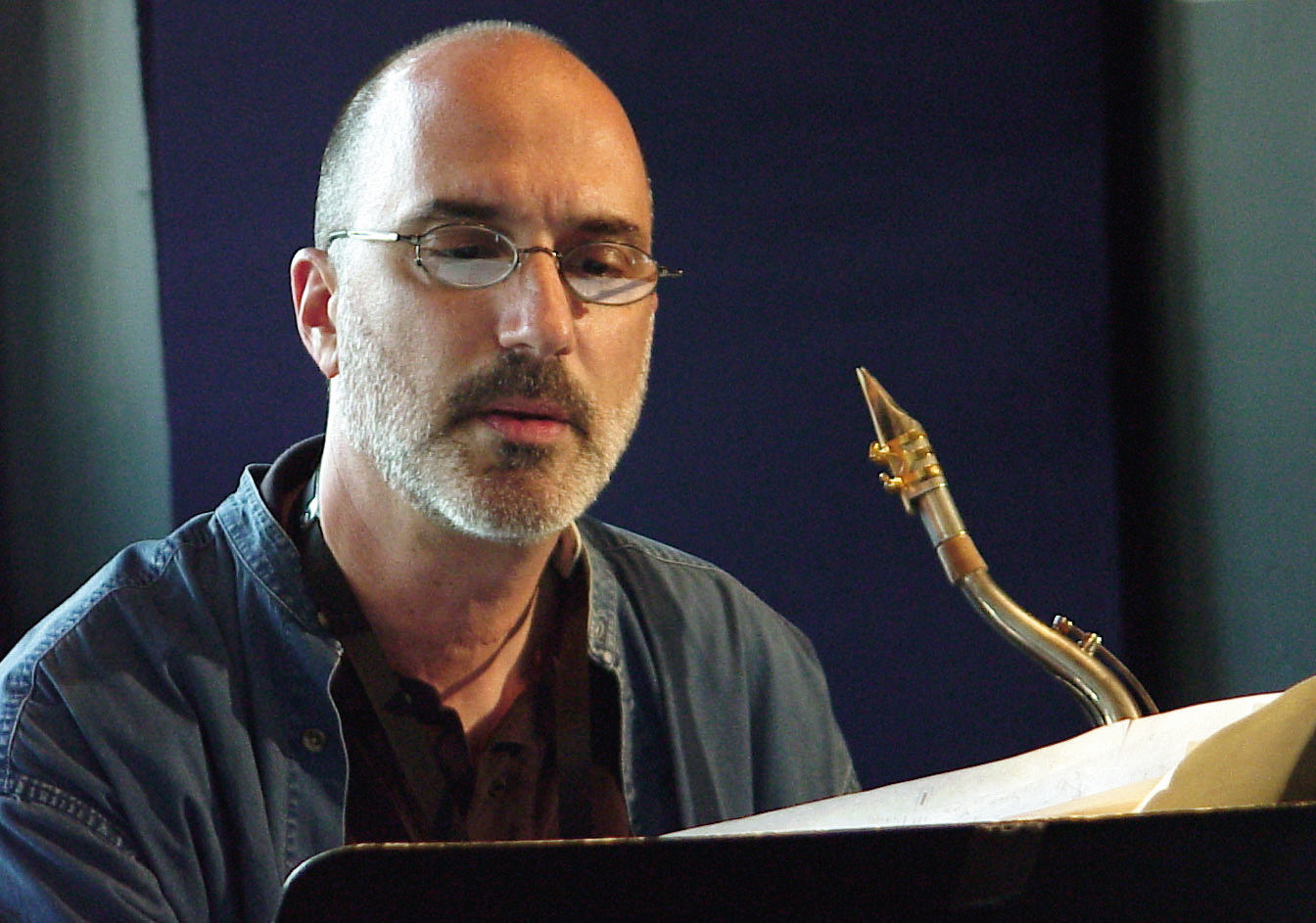Contents
Michael Brecker Net Worth
Michael Leonard Brecker makes how much a year? For this question we spent 12 hours on research (Wikipedia, Youtube, we read books in libraries, etc) to review the post.
The main source of income: Actors
Total Net Worth at the moment 2024 year – is about $94,9 Million.
Youtube
Biography
Michael Leonard Brecker information Birth date: March 29, 1949, Cheltenham, Pennsylvania, United States Death date: January 13, 2007, New York City, New York, United States Birth place: Philadelphia, Pennsylvania, USA Profession:Actor, Soundtrack Siblings:Randy Brecker Music groups:The Brecker Brothers, The Players Association, Members Only
Height, Weight
:How tall is Michael Brecker – 1,61m.
How much weight is Michael Brecker – 81kg
Pictures
.jpg)



Wiki
Michael Leonard Brecker (March 29, 1949 – January 13, 2007) was an American jazz saxophonist and composer. Acknowledged as ", a quiet, gentle musician widely regarded as the most influential tenor saxophonist since John Coltrane", , he was awarded 15 Grammy Awards as both performer and composer. He was awarded an Honorary Doctorate from Berklee College of Music in 2004, and was inducted into the Down Beat Jazz Hall of Fame in 2007.
Biography,Early life & careerMichael Brecker was born in Philadelphia and raised in Cheltenham Township, a local suburb. His father Bob (Bobby) was a lawyer who played jazz piano and his mother Sylvia was a portrait artist. Michael Brecker was exposed to jazz at an early age by his father. He grew up as part of the generation of jazz musicians who saw rock music not as the enemy but as a viable musical option. Brecker began studying clarinet at age 6, then moved to alto saxophone in eighth grade, settling on the tenor saxophone as his primary instrument in his sophomore year. He graduated from Cheltenham High School in 1967 and after a year at Indiana University he moved to New York City in 1969, where he carved out a niche for himself as a dynamic and exciting jazz soloist. He first made his mark at age 21 as a member of the jazz-rock band Dreams—a band that included his older brother, trumpeter Randy Brecker, trombonist Barry Rogers, drummer Billy Cobham, keyboardist Jeff Kent and bassist Doug Lubahn. Dreams was short-lived, lasting only a year, but Miles Davis was seen at some gigs prior to his recording Jack Johnson.Most of Breckers early work is marked by an approach informed as much by rock guitar as by R&B saxophone. After Dreams, he worked with Horace Silver and then Billy Cobham before once again teaming up with his brother Randy to form the Brecker Brothers. The band followed jazz-rock trends of the time, but with more attention to structured arrangements, a heavier backbeat, and a stronger rock influence. The band stayed together from 1975 to 1982, with consistent success and musicality.Sideman and leaderBrecker was in great demand as a soloist and sideman. He performed with bands whose styles ranged from mainstream jazz to mainstream rock. Altogether, he appeared on over 700 albums, either as a band member or a guest soloist. He put his stamp on numerous pop and rock recordings as a soloist. His featured guest solos with James Taylor and Paul Simon are excellent examples of that strand of his work.[citation needed] For example, on Taylors 1972 album, One Man Dog, Breckers solo on the track Dont Let Me Be Lonely Tonight complements the other acoustic instruments and sparse vocal. On Simons 1975 album Still Crazy After All These Years, Breckers solo on the title track is used to a similar effect. His solos are often placed in the bridge, or appended as a rideout coda. Such a combination of musical structure and instrumentation typifies (and to some extent defines) this jazz-rock fusion style. Other notable jazz and rock collaborations included work with Steely Dan, Lou Reed, Donald Fagen, Dire Straits, Joni Mitchell, Eric Clapton, Billy Joel, John Lennon, Aerosmith, Dan Fogelberg, Frank Sinatra, Frank Zappa, Bruce Springsteen, Roger Daltrey, Parliament-Funkadelic, Cameo, Yoko Ono, Todd Rundgren, Chaka Khan, Blue Oyster Cult, The Manhattan Transfer, Average White Band, Players Association, Paul Simon, James Taylor, Everything but the Girl, Patti Austin, Art Garfunkel, Carly Simon and The Brothers Johnson.Brecker also recorded or performed with leading jazz figures during his era, including Herbie Hancock, Chick Corea, Chet Baker, George Benson, Quincy Jones, Charles Mingus, Jaco Pastorius, McCoy Tyner, Pat Metheny, Elvin Jones, Claus Ogerman, Billy Cobham, Horace Silver, Mike Stern, Mike Mainieri, Steps Ahead, Dave Holland, Joey Calderazzo, Kenny Kirkland, Bob James, Grant Green, Don Cherry, Hubert Laws, Don Alias, Larry Goldings, Gary Burton, Yusef Lateef, Steve Gadd, Dave Brubeck, Charlie Haden, John Abercrombie, Roy Hargrove and Spyro Gyra.Later careerBrecker played tenor saxophone on two Billy Joel albums. In 1983, Brecker played on three tracks on the album An Innocent Man (Careless Talk, Tell Her About It and Keeping The Faith). In 1986, he played on Big Man on Mulberry Street on the album The Bridge.During the early 1980s, he was also a member of NBCs Saturday Night Live Band. Brecker can be seen in the background sporting sunglasses during Eddie Murphys James Brown parody. After a stint co-leading the all-star group Steps Ahead with Mike Mainieri, Brecker recorded a solo album in 1987. That eponymously titled debut album marked his return to a more traditional jazz setting, highlighting his compositional talents and featuring the EWI (Electronic Wind Instrument), which Brecker had previously played with Steps Ahead. In 1987 he featured his new solo album at the JVC Newport Jazz Festival, incorporating the EWI. Brecker continued to record albums as a leader throughout the 1990s and 2000s, winning multiple Grammy Awards. His solo and group tours consistently sold out top jazz venues in major cities worldwide.[citation needed]He went on tour in 2001 with a collaborative group, Hancock-Brecker-Hargrove. This tour was dedicated to jazz pioneers John Coltrane and Miles Davis. Brecker paid homage to Coltrane by performing Coltranes signature piece, Naima. The composition is a definitive work for tenor sax, its demanding solo enabled Brecker to show his complete mastery of the instrument.[citation needed] The concert CD from the tour, Directions in Music: Live At Massey Hall (2002), won a Grammy in 2003.While performing at the Mount Fuji Jazz Festival in 2004, Brecker experienced a sharp pain in his back. Shortly thereafter in 2005, he was diagnosed with the blood disorder myelodysplastic syndrome (MDS). Despite a widely publicized worldwide search, Brecker was unable to find a matching stem cell donor. In late 2005, he was the recipient of an experimental partial matching stem cell transplant. By late 2006, he appeared to be recovering, but the treatment proved not to be a cure. He made his final public performance on June 23, 2006, playing with Hancock at Carnegie Hall.
Summary
Wikipedia Source: Michael Brecker